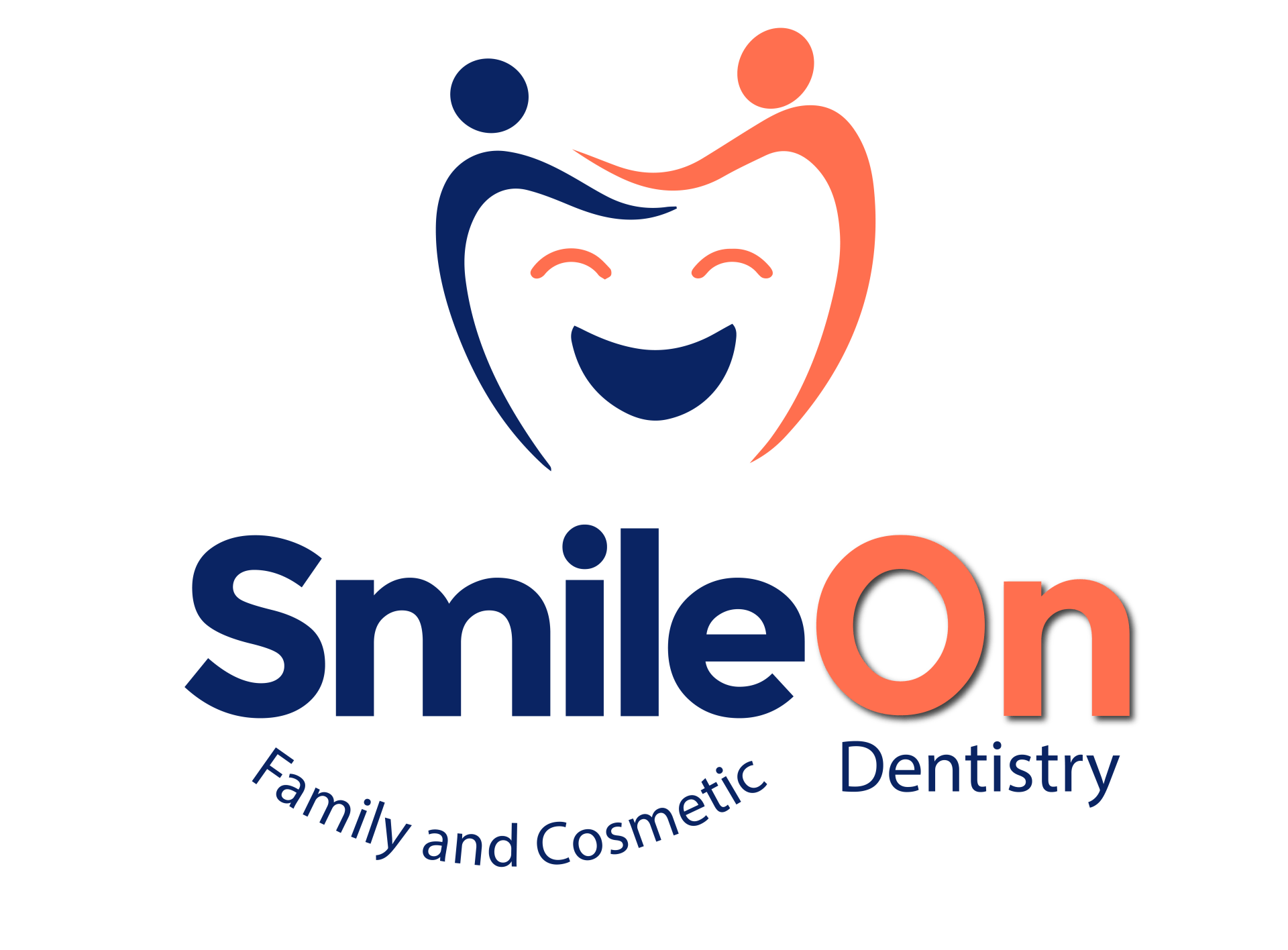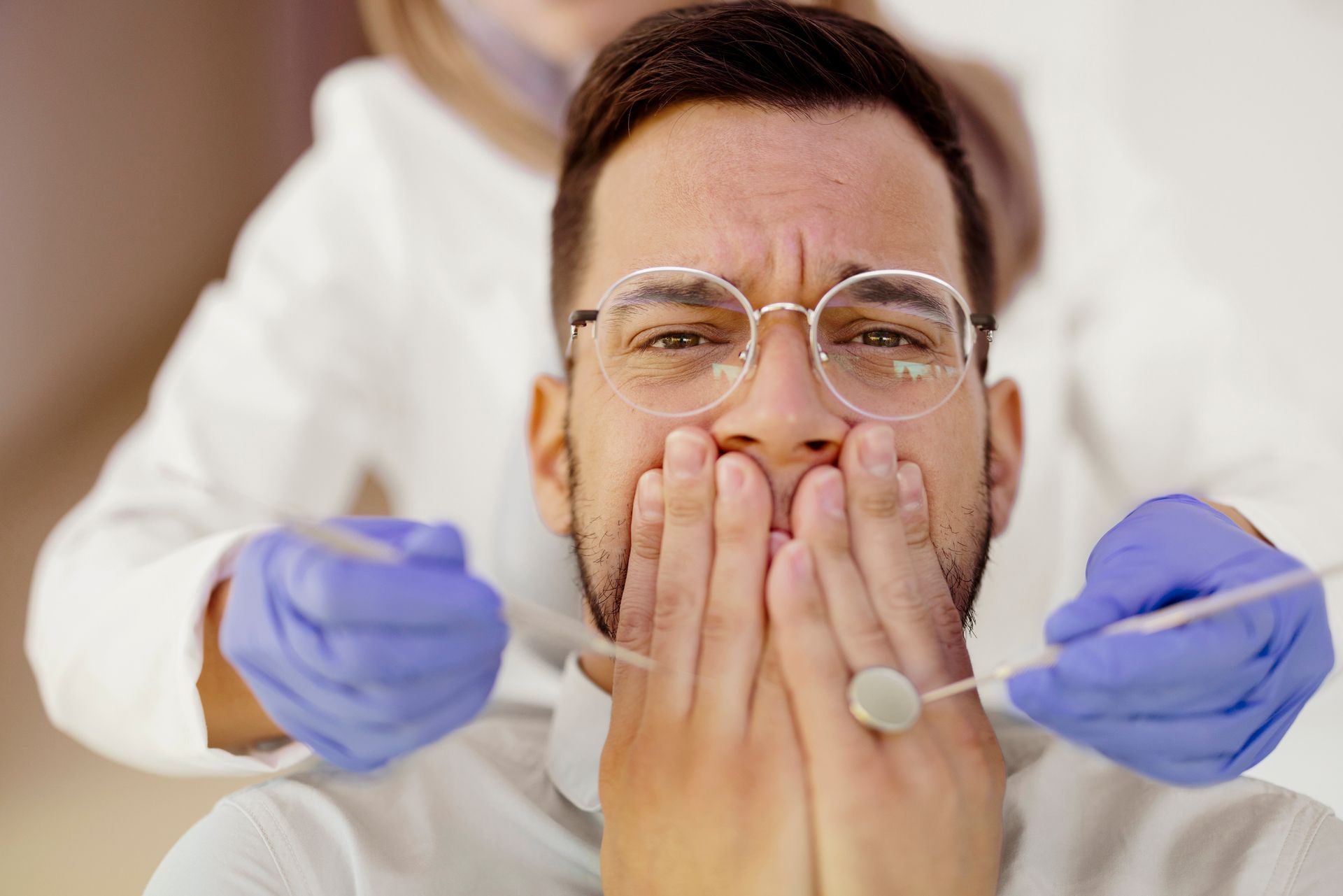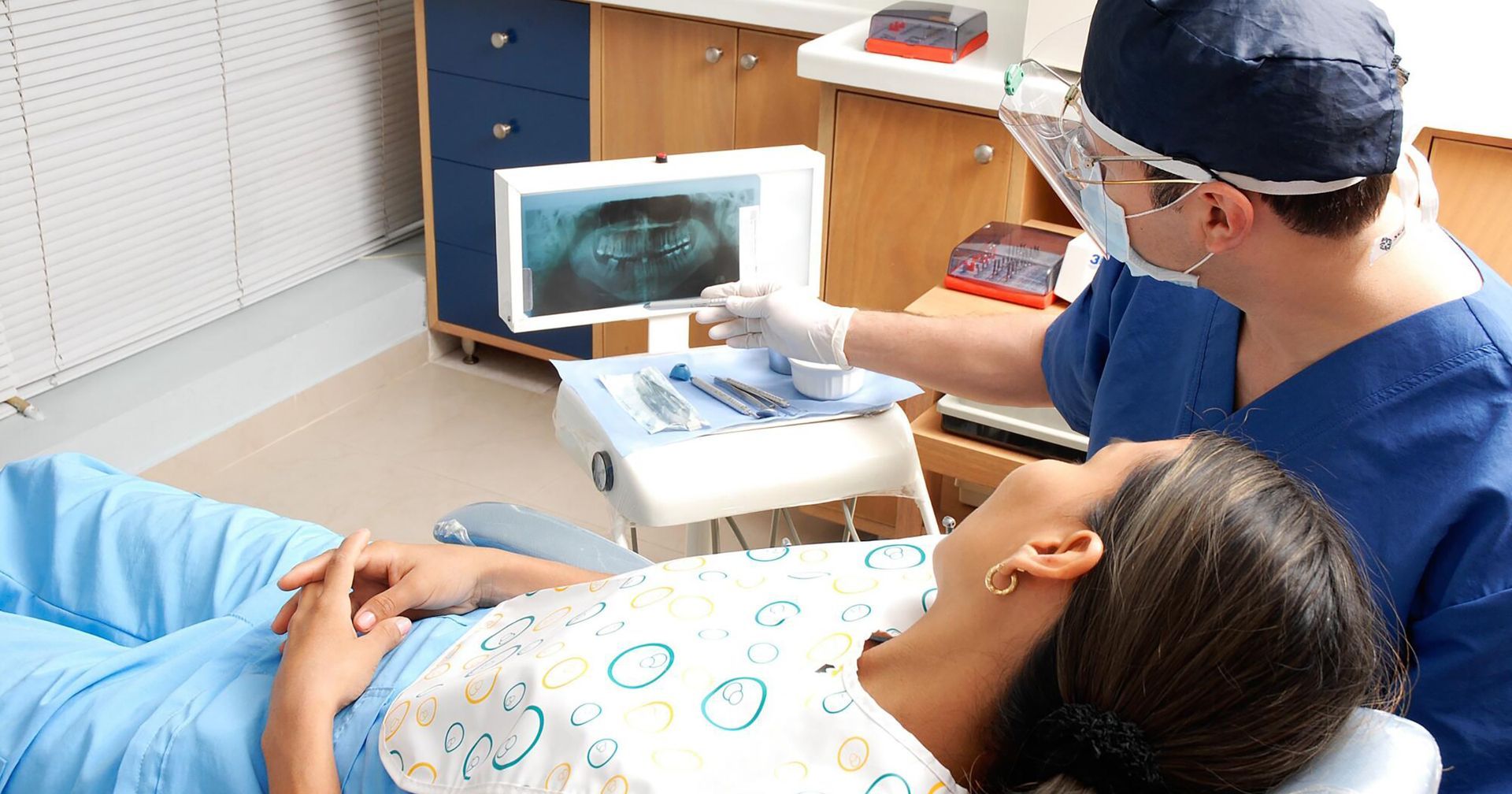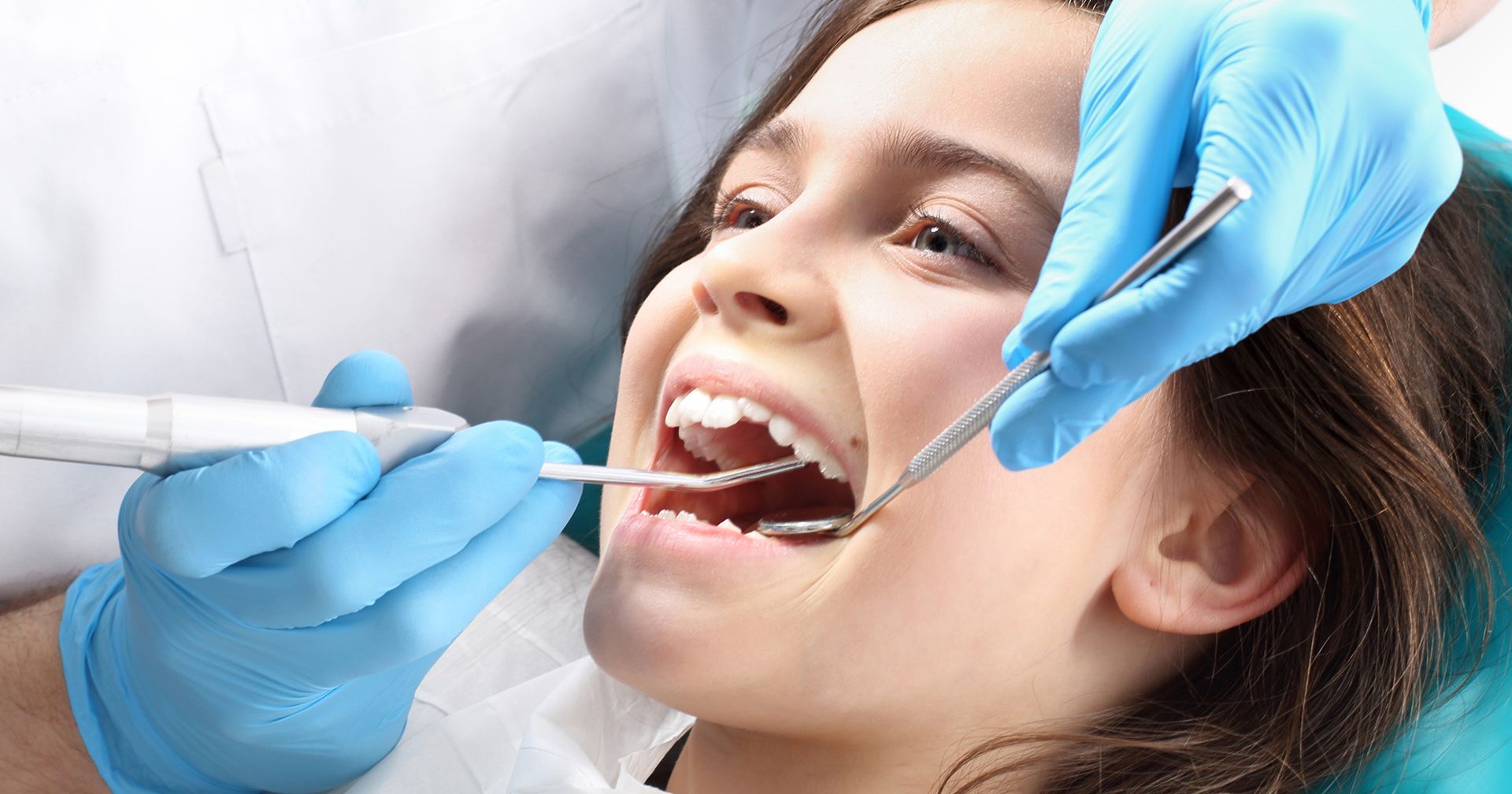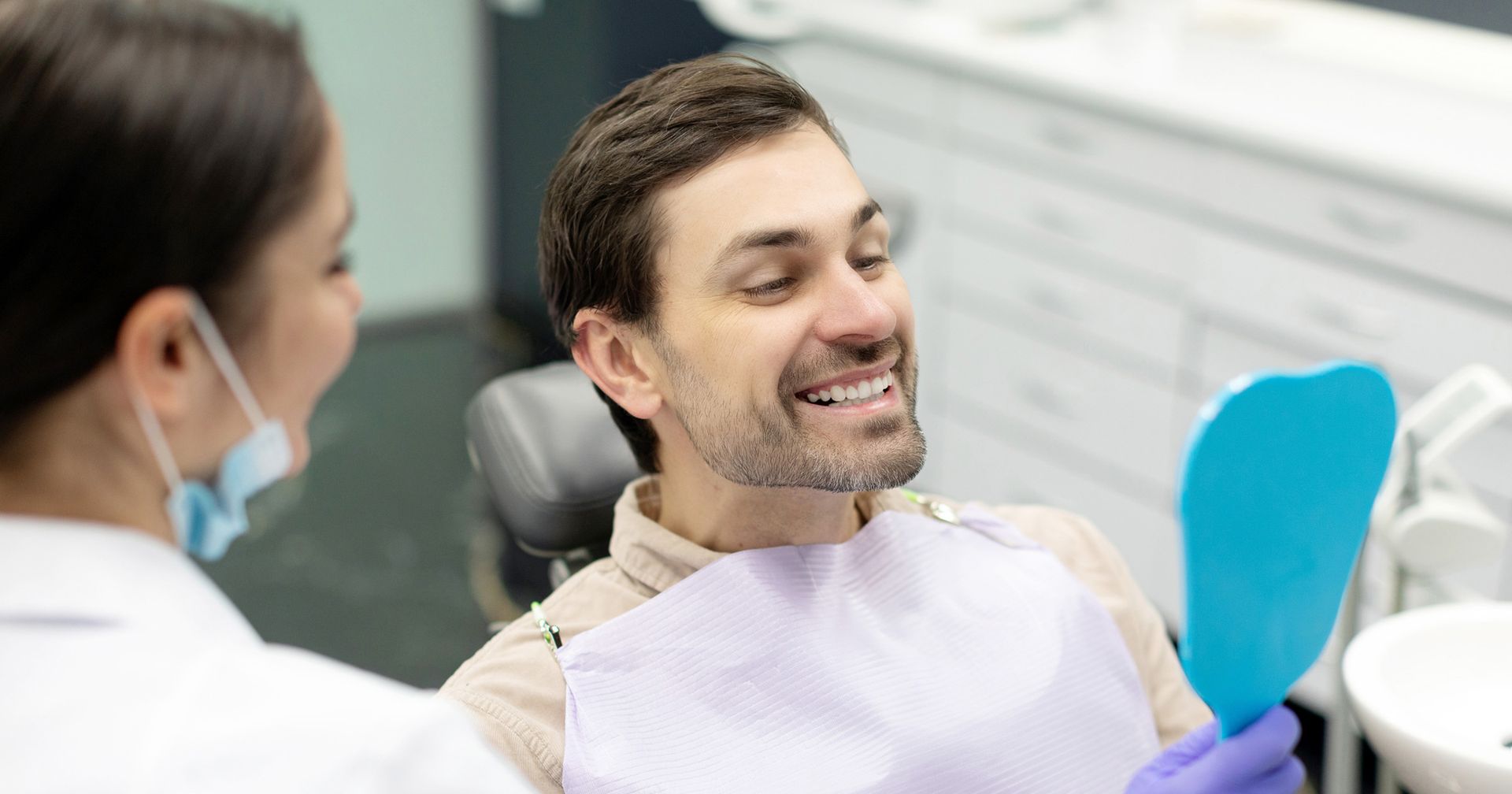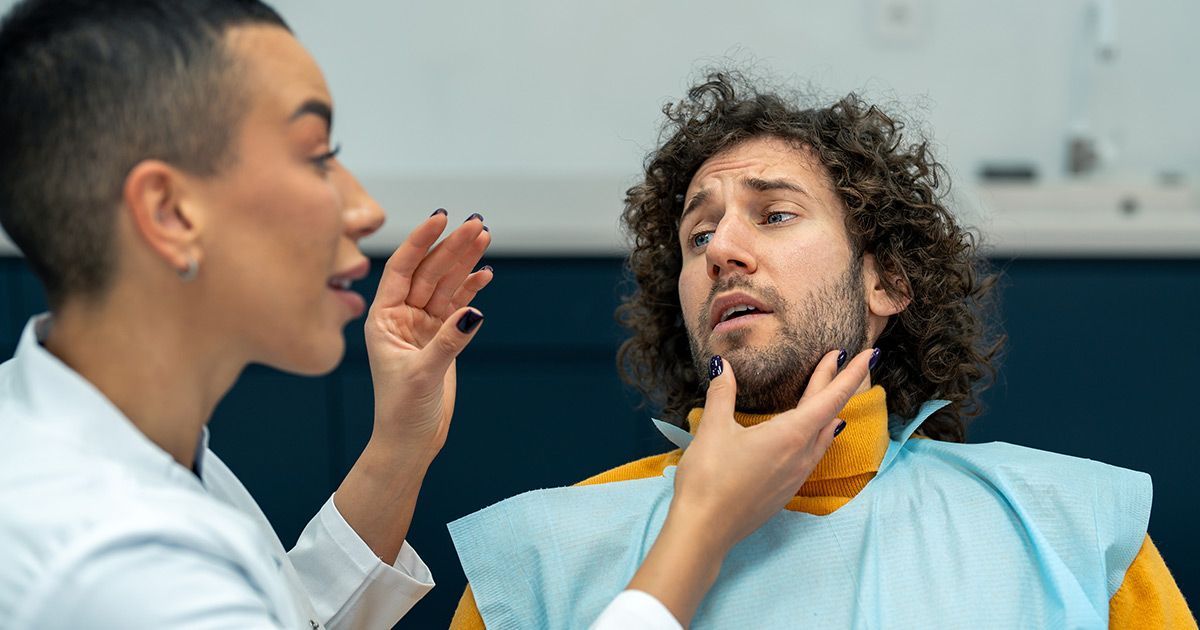Understanding Dental X-Rays: Why They Are Important for Your Oral Health
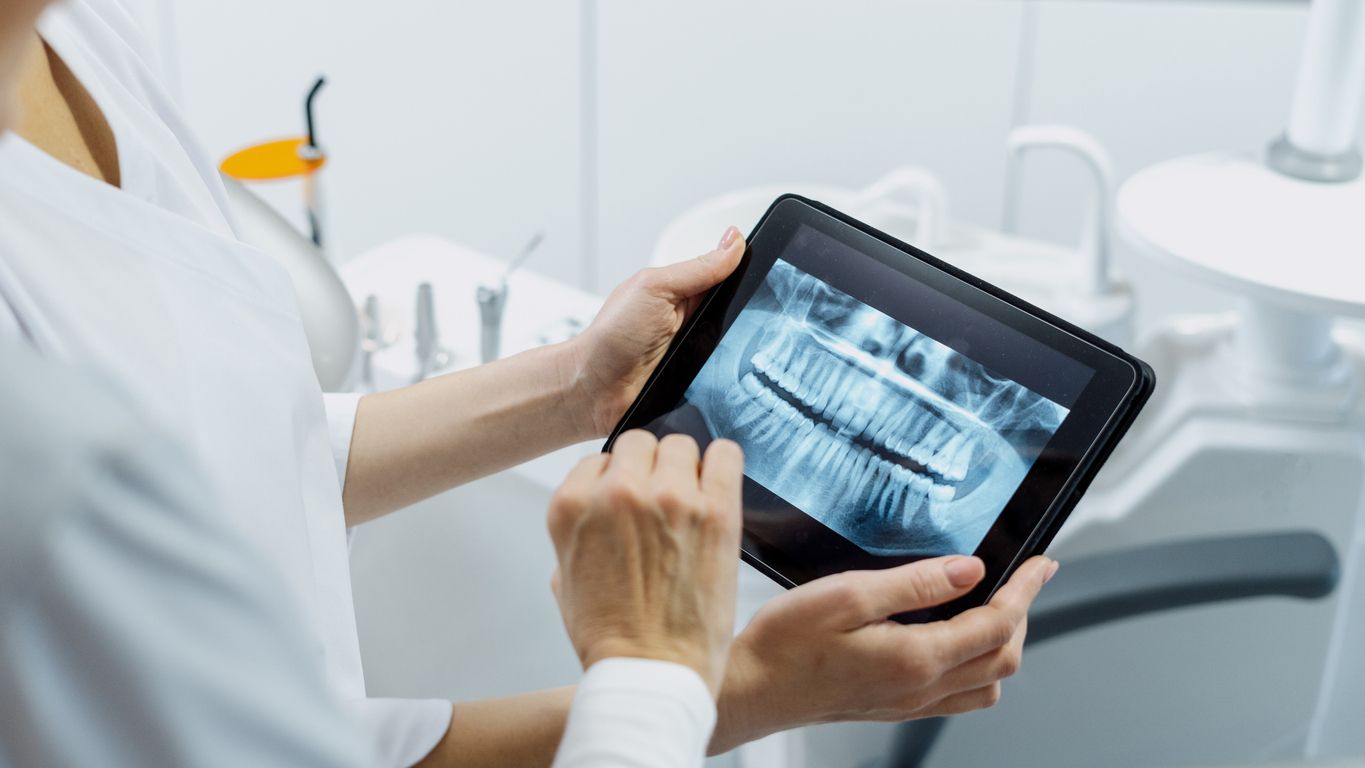
Introduction
At SmileOn Dentistry in Centreville, VA, we know that dental visits can often feel overwhelming, especially when it comes to unfamiliar procedures like dental X-rays. However, dental X-rays are an essential diagnostic tool that provides invaluable insight into the health of your teeth, gums, and underlying bone structures. These images help us detect problems early and create a personalized treatment plan to maintain your smile’s health for years to come.
This blog will dive deep into the importance of dental X-rays, how they help in diagnosing and preventing dental issues, and why they are a key component of preventive dentistry. Whether you're a new patient or someone who’s been with us for years, understanding the role of X-rays can empower you to make informed decisions about your oral health.
What Are Dental X-Rays?
Dental X-rays, also known as radiographs, are imaging techniques used by dentists to capture detailed pictures of the inside of your teeth, gums, and jawbones. Unlike the visual inspection during a routine checkup, X-rays allow dentists to identify issues that are hidden beneath the surface, including cavities between teeth, gum disease, bone loss, infections, and even tumors.
Modern X-rays are fast, safe, and provide detailed information that helps in diagnosing conditions before they become severe. These X-rays are taken using a small amount of radiation, which is considered safe. They help us track the overall condition of your mouth and identify issues early, sometimes before they cause any pain or noticeable symptoms
How Do Dental X-Rays Work?
During a dental X-ray, a small lead apron is placed over your body to protect you from radiation exposure. You will bite down on a small piece of equipment that holds the X-ray film or digital sensor in place. The dentist will then use a machine to direct X-ray beams through your mouth to capture images of your teeth, gums, and bone structure.
There are several types of X-rays that may be used depending on the situation:
- Bitewing X-Rays: These show the upper and lower teeth in one area of the mouth. They are useful for detecting cavities between teeth and checking for bone loss caused by gum disease.
- Periapical X-Rays: These focus on one or two complete teeth, including the root and surrounding bone. They help detect issues below the gumline, such as abscesses or problems with tooth roots.
- Panoramic X-Rays: These provide a full view of your entire mouth, including all your teeth, the jaw, and sinuses. They help detect larger issues, such as jawbone problems, impacted teeth, and oral cancers.
- Cone Beam CT: This 3D X-ray offers a comprehensive view of the mouth, teeth, and bone structure. It is often used in advanced procedures, like dental implants, to better assess bone density and location.
The Role of X-Rays in Diagnosing Dental Problems
X-rays provide a wealth of information that is not visible during a traditional dental exam. By providing a detailed view of the teeth and surrounding bone structures, X-rays help identify hidden dental problems early on. Some of the most common dental issues that X-rays can uncover include:
- Cavities: While surface-level cavities can sometimes be detected with a visual exam, X-rays can find cavities between teeth or under existing fillings, areas that are not easily visible to the dentist.
- Infections and Abscesses: X-rays help identify infections in the tooth’s root or the surrounding bone, which can lead to more severe complications if untreated. Detecting an abscess early can prevent tooth loss and more invasive procedures, such as root canals.
- Bone Loss: Over time, untreated gum disease can cause the bone that supports your teeth to deteriorate. X-rays show the extent of bone loss, helping your dentist create an early intervention plan to prevent further damage.
- Impacted Teeth: Wisdom teeth and other teeth that don’t erupt properly can cause pain and complications. X-rays allow the dentist to assess the position of impacted teeth and determine whether they should be removed or treated.
- Tumors and Cysts: While rare, dental X-rays can sometimes reveal cysts or tumors in the jaw, which may not show symptoms until they’ve grown larger. Early detection is key to preventing serious health problems.
Preventive Care: How X-Rays Help Prevent Future Dental Issues
One of the primary reasons X-rays are crucial for preventive dentistry is their ability to catch dental issues early. Many dental conditions, such as cavities, gum disease, and infections, do not cause pain or noticeable symptoms in the early stages. By the time these problems become painful or visible, they may require more invasive treatments, such as root canals or extractions.
X-rays give us the opportunity to catch these issues early, often before you even experience any discomfort.
Early detection allows us to treat problems with minimally invasive procedures that are less costly and time-consuming. For example, small cavities can often be treated with simple fillings, whereas larger, untreated cavities may require a crown or even a root canal.
How X-Rays Help in Planning Advanced Dental Treatments
Dental X-rays play a critical role in planning more complex dental procedures, ensuring that treatments are both effective and safe. Here’s how they are used in advanced dental care:
- Dental Implants: Before placing a dental implant, it’s essential to assess the condition of the jawbone. X-rays help evaluate bone density and determine the optimal location for the implant. Without an accurate X-ray, it would be difficult to assess whether the bone is strong enough to support the implant. Digital X-rays and 3D Cone Beam CT scans provide a comprehensive view, enabling dentists to plan implant placements with precision and ensure long-term success.
- Root Canals: When a tooth becomes infected, an X-ray is used to determine the extent of the infection, including whether the infection has spread to the surrounding bone. This allows the dentist to plan the root canal procedure effectively, ensuring that the infection is thoroughly removed and the tooth is restored properly.
- Orthodontics: X-rays are essential for orthodontic planning. For example, before starting braces or clear aligner treatment, an X-ray helps assess tooth and jaw alignment and identify any hidden issues, such as impacted teeth. This allows the orthodontist to create a personalized treatment plan and predict how your teeth will move throughout the process.
By using X-rays to plan advanced treatments, dentists ensure that all factors are taken into account before proceeding, leading to better outcomes and fewer complications.
Are Dental X-Rays Safe?
One of the most common concerns patients have about dental X-rays is the safety of the procedure. We want to reassure you that dental X-rays are safe, especially with the technological advances in modern dentistry. At SmileOn Dentistry, we use digital X-rays, which require significantly less radiation compared to traditional film-based X-rays. Digital X-rays also provide immediate results, reducing the need for repeated exposures.
Additionally, we take all necessary precautions to protect you during the procedure. A lead apron and thyroid collar are used to protect your body from radiation exposure. The level of radiation used in dental X-rays is so low that it is considered negligible in terms of health risks.
How Often Should You Have Dental X-Rays?
The frequency of dental X-rays depends on your oral health, risk factors, and the type of dental care you need. For healthy adults with no significant oral health issues, X-rays may only be needed every 1-2 years. However, patients with a history of cavities, gum disease, or other dental problems may require more frequent X-rays to monitor changes in their condition.
Your dentist will assess your individual needs and determine the appropriate schedule for X-rays during your routine visits. At SmileOn Dentistry, we ensure that each patient’s care plan is personalized, taking into account their unique oral health needs and medical history.
Common Myths About Dental X-Rays
Despite their importance, dental X-rays are often misunderstood. Below, we debunk some of the most common myths:
- Myth 1: Dental X-rays are painful
Truth: Dental X-rays are completely painless. All you need to do is bite down on a small sensor or film, and the X-ray is taken in just a few seconds. There is no discomfort involved, and the procedure is over quickly. - Myth 2: Dental X-rays expose me to dangerous radiation
Truth: Dental X-rays use very low levels of radiation, far less than many common activities, such as flying in an airplane or even getting a chest X-ray. With modern digital X-rays, radiation exposure is even further reduced, making them extremely safe for patients. - Myth 3: I don’t need X-rays if I’m not in pain
Truth: Many dental issues, such as cavities, gum disease, and bone loss, don’t cause pain until they are more advanced. Dental X-rays allow your dentist to catch these problems early, often before you feel any discomfort, which means they can be treated before they become more serious. - Myth 4: X-rays are only needed for children
Truth: While X-rays are crucial for tracking the development of children’s teeth, adults also benefit from routine X-rays to detect hidden issues such as cavities, bone loss, or even early signs of oral cancer. Adults should continue to have X-rays as recommended by their dentist.
By addressing these myths, we hope to alleviate any concerns you may have about dental X-rays, making it easier to maintain your oral health through regular check-ups.
Your Partner in Preventive Dental Care
Dental X-rays are an essential part of preventive and general dentistry. At SmileOn Dentistry, we use the latest technology to help identify potential dental issues before they become major problems. Whether you're visiting for a routine check-up or need more in-depth care, we are committed to helping you maintain a healthy, beautiful smile.
If you’re due for a check-up or have concerns about your oral health, schedule an appointment with SmileOn Dentistry today. Our friendly, experienced team is here to ensure you receive the care your smile needs.
Ready to maintain a healthy, bright smile? Book your appointment today with SmileOn Dentistry in Centreville, VA, and let us help you keep your teeth and gums in top shape.
